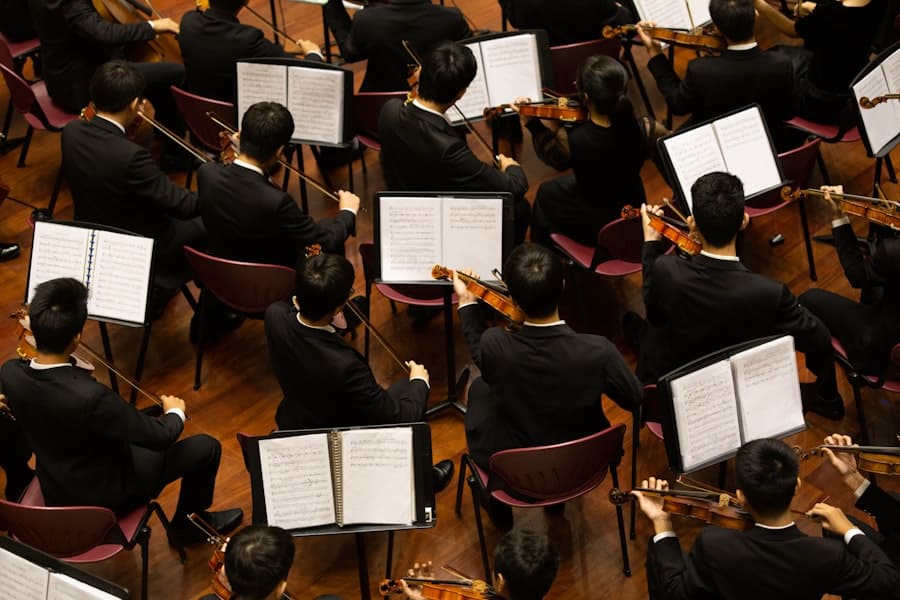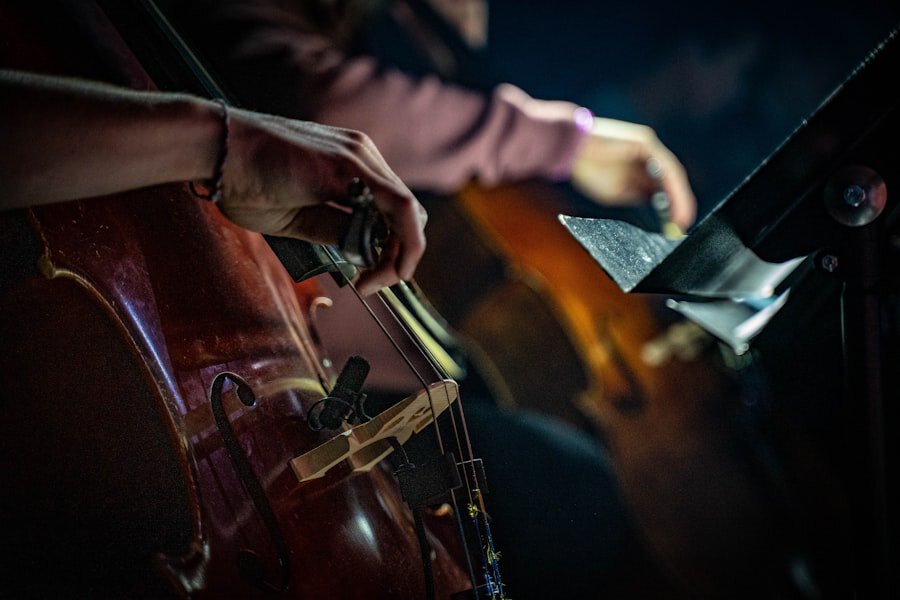The advent of artificial intelligence has revolutionized numerous fields, and music is no exception. AI-generated music refers to compositions created by algorithms and machine learning models that analyze existing musical patterns, styles, and structures to produce new pieces. This technology has gained traction in recent years, driven by advancements in deep learning and neural networks, which enable machines to understand and replicate the nuances of human creativity.
As a result, AI-generated music is not only becoming more sophisticated but also increasingly accessible to developers and creators across various industries, including gaming. In the realm of video games, where immersive experiences are paramount, the integration of AI-generated music presents a unique opportunity. Game developers are constantly seeking innovative ways to enhance player engagement and emotional connection through soundscapes.
The ability of AI to generate adaptive soundtracks that respond to gameplay dynamics can significantly elevate the overall gaming experience. By tailoring music to individual player actions or environmental changes, AI-generated compositions can create a more personalized and engaging atmosphere, ultimately transforming how players interact with virtual worlds.
Key Takeaways
- AI-generated music is created using algorithms and machine learning techniques to compose original pieces of music without human intervention.
- Music has a significant impact on game atmospheres, influencing player emotions and engagement with the game environment.
- Advantages of using AI-generated music in games include cost-effectiveness, customization, and the ability to adapt to player actions in real-time.
- Challenges and limitations of AI-generated music in games include the potential for lack of emotional depth and the need for human oversight to ensure quality.
- Successful examples of AI-generated music in games include dynamic soundtracks that adjust to player choices and preferences, enhancing the overall gaming experience.
The Impact of Music on Game Atmospheres
The Power of Emotional Resonance
This emotional resonance is vital for creating memorable gaming experiences that linger long after the console is turned off. Moreover, music serves as a powerful storytelling tool within games. It can foreshadow events, signal changes in gameplay, or even provide context for character development.
Music as a Narrative Tool
For instance, in role-playing games (RPGs), a character’s theme may evolve alongside their journey, reflecting their growth and struggles. The interplay between music and gameplay mechanics can create a seamless narrative experience that draws players deeper into the game world.
The Importance of Music in Gaming
As such, the importance of music in gaming cannot be overstated; it is an integral component that shapes player perceptions and influences their emotional responses.
Advantages of Using AI-Generated Music in Games

One of the most significant advantages of utilizing AI-generated music in games is its ability to create dynamic soundscapes that adapt in real-time to player actions. Traditional soundtracks are often linear and predetermined, which can lead to repetitive experiences as players progress through a game. In contrast, AI-generated music can analyze gameplay data and adjust the soundtrack accordingly, ensuring that the audio experience remains fresh and engaging throughout.
This adaptability not only enhances immersion but also allows for a more personalized experience tailored to individual player styles. Additionally, AI-generated music can significantly reduce production costs and time for game developers. Composing original scores typically requires hiring skilled musicians and sound designers, which can be both expensive and time-consuming.
With AI tools, developers can generate high-quality music quickly and efficiently, allowing them to allocate resources to other critical aspects of game development. This democratization of music creation means that even smaller indie studios can access sophisticated soundscapes without the financial burden associated with traditional composition methods.
Challenges and Limitations of AI-Generated Music in Games
Despite its numerous advantages, the use of AI-generated music in games is not without challenges. One primary concern is the potential lack of emotional depth and nuance that human composers bring to their work. While AI can analyze patterns and replicate styles, it may struggle to capture the subtleties of human emotion that resonate with players on a deeper level.
This limitation can result in soundtracks that feel generic or uninspired, failing to evoke the intended emotional responses during critical moments in gameplay. Another challenge lies in the integration of AI-generated music within existing game frameworks. Developers must ensure that the adaptive soundtracks align seamlessly with gameplay mechanics and narrative elements.
This requires careful consideration of how music interacts with player actions and environmental changes. If not executed properly, AI-generated music could disrupt the flow of gameplay or detract from the overall experience rather than enhance it. Striking the right balance between automation and artistic intent remains a significant hurdle for developers looking to implement this technology effectively.
Examples of Successful Implementation of AI-Generated Music in Games
Several notable examples illustrate the successful integration of AI-generated music within gaming environments. One prominent case is “No Man’s Sky,” an expansive space exploration game developed by Hello Games. The game’s soundtrack was created using an AI system that generates music based on player exploration patterns and environmental factors.
As players traverse different planets and encounter various biomes, the music dynamically shifts to reflect their surroundings, creating an immersive auditory experience that complements the vastness of the game world. Another example is “Ghost Recon Breakpoint,” where Ubisoft employed AI-driven technology to create an adaptive soundtrack that responds to player actions during missions. The game’s music evolves based on factors such as combat intensity and player decisions, enhancing the overall atmosphere and making each playthrough feel unique.
These implementations demonstrate how AI-generated music can elevate gameplay experiences by providing tailored soundscapes that resonate with players on multiple levels.
The Future of AI-Generated Music in Gaming

Looking ahead, the future of AI-generated music in gaming appears promising as technology continues to evolve. As machine learning algorithms become more sophisticated, we can expect even greater advancements in the quality and complexity of AI-generated compositions. Future developments may enable AI systems to not only analyze existing musical styles but also innovate new genres or hybrid forms that blend various influences seamlessly.
This could lead to entirely new auditory experiences that redefine how players engage with sound in games. Moreover, as virtual reality (VR) and augmented reality (AR) technologies gain traction, the role of music will become increasingly vital in creating immersive environments. AI-generated music could play a pivotal role in these experiences by adapting not only to player actions but also to their physical movements within a space.
This level of interactivity could transform how players perceive soundscapes, making them integral components of gameplay rather than mere background elements.
Ethical Considerations in the Use of AI-Generated Music in Games
The rise of AI-generated music also raises important ethical considerations that developers must address as they integrate this technology into their games. One significant concern revolves around copyright issues and intellectual property rights. As AI systems learn from existing musical works to generate new compositions, questions arise regarding ownership and originality.
Developers must navigate these complexities to ensure that they are not infringing on existing copyrights while still benefiting from the capabilities of AI. Additionally, there is a risk that reliance on AI-generated music could diminish opportunities for human composers within the gaming industry. While AI can streamline production processes and reduce costs, it may also lead to fewer job opportunities for talented musicians who contribute unique perspectives and creativity to game soundtracks.
Striking a balance between leveraging technology for efficiency while preserving artistic integrity will be crucial for maintaining a diverse and vibrant musical landscape within gaming.
The Potential of AI-Generated Music in Enhancing Game Atmospheres
The integration of AI-generated music into video games holds immense potential for enhancing player experiences and creating immersive atmospheres that resonate on emotional levels. By harnessing the capabilities of artificial intelligence, developers can craft dynamic soundscapes that adapt to gameplay in real-time, providing personalized auditory experiences that elevate engagement and immersion. However, challenges remain regarding emotional depth, integration with gameplay mechanics, and ethical considerations surrounding copyright and employment within the industry.
As technology continues to advance, we can anticipate exciting developments in AI-generated music that will further enrich gaming experiences while addressing these challenges head-on. The future promises innovative compositions that not only complement gameplay but also push the boundaries of creativity within the medium. Ultimately, as developers explore the possibilities offered by AI-generated music, they have the opportunity to redefine how sound influences player interactions with virtual worlds, paving the way for a new era of gaming experiences enriched by technology-driven artistry.
In a recent article on Hacker Noon, the discussion around AI-generated music in enhancing game atmospheres is further explored. The article delves into the various ways in which artificial intelligence is revolutionizing the gaming industry, particularly in the realm of creating immersive and dynamic soundtracks. By utilizing AI algorithms to generate music that adapts to the player’s actions and emotions, game developers are able to enhance the overall gaming experience and create more engaging atmospheres for players.
FAQs
What is AI-generated music?
AI-generated music refers to music that is composed with the assistance of artificial intelligence algorithms. These algorithms can analyze existing music, identify patterns, and create new compositions based on those patterns.
How is AI-generated music used in games?
AI-generated music is used in games to enhance the overall atmosphere and experience for players. It can create dynamic and adaptive soundtracks that respond to the actions and events happening in the game, providing a more immersive and engaging experience.
What are the benefits of using AI-generated music in games?
Using AI-generated music in games can provide several benefits, including the ability to create unique and personalized soundtracks for each player, adapt the music to match the pace and intensity of the gameplay, and reduce the cost and time associated with creating original music compositions.
Are there any limitations to using AI-generated music in games?
While AI-generated music can offer many benefits, there are also limitations to consider. These may include the potential for the music to sound repetitive or lack the emotional depth of music composed by humans, as well as the need for careful curation and oversight to ensure the music aligns with the game’s overall aesthetic and narrative.
What is the future of AI-generated music in games?
The future of AI-generated music in games is likely to involve further advancements in AI algorithms, leading to even more sophisticated and emotionally resonant compositions. Additionally, as AI technology continues to evolve, we may see more seamless integration of AI-generated music with other aspects of game design, such as narrative and gameplay mechanics.

